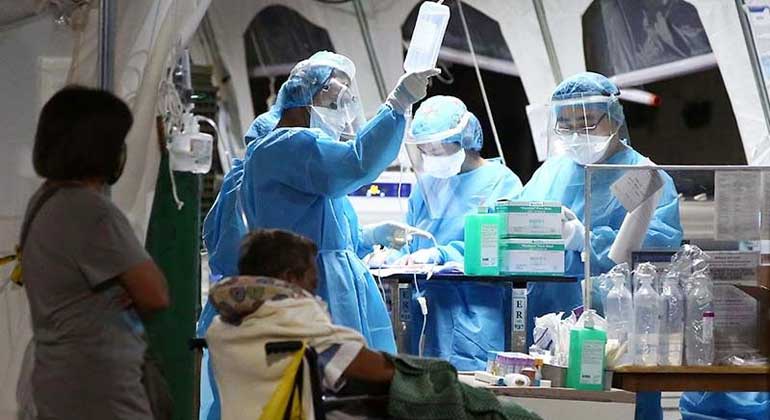THE GOVERNMENT will set up more quarantine facilities with as many as 4,000 beds in Metro Manila for patients in the country’s coronavirus hotspot, according to the Public Works department.
Public Works Secretary Mark A. Villar on Tuesday said 75% of quarantine facilities for coronavirus patients in the National Capital Region (NCR) had been used. This was 10% higher than the 64.48% occupancy rate reported on March 29.
“We need to boost our intensive care unit capacities,” he told a televised news briefing in Filipino. The government seeks to lower the occupancy rate to less than 60%.
Mr. Villar said a modular hospital for tuberculosis patients that was recently set up in Quezon City would open this week. The facility has 110 rooms dedicated to patients with severe and critical coronavirus cases.
The isolation facility will also have living quarters for health workers, he said.
Presidential spokesman Herminio L. Roque, Jr. said four more quarantine facilities were expected to house more than 700 coronavirus patients this week.
The newly built facilities are in Subic, New Clark City, Manila and Bataan, he told a separate news briefing.
A number of coronavirus patients have reportedly sought treatment outside the capital region after being turned down by hospitals there.
Meanwhile, an inter-agency task force ruled out testing a large portion of the country’s population amid a fresh surge in infections.
The government will continue its “risk-based” and “targeted” coronavirus testing because experts do not recommend broad-scale testing, testing czar Vivencio B. Dizon told a televised press briefing.
He said mass testing is contrary to the recommendations of medical experts, adding that testing 110 million Filipinos was not ideal.
Also on Tuesday, Rontgene M. Solante, a member of the Science and Technology department’s Vaccine Expert Panel said a person infected with the coronavirus should be vaccinated two weeks after recovery.
They will recommend the shorter waiting time in place of the 90 days now being enforced by health authorities, he told an online news briefing. — Kyle Aristophere T. Atienza and Vann Marlo M. Villegas

